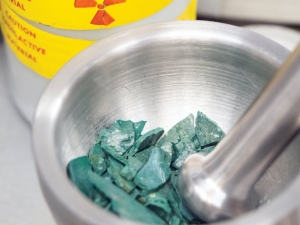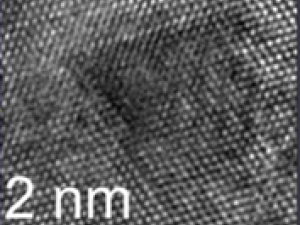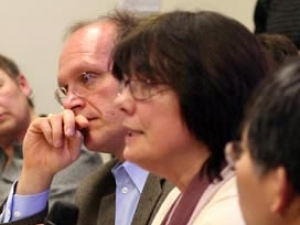

Research Bio
Prof. Hosemann is interested in experimental material science for nuclear applications. His main focus is on structural materials used for nuclear components (fission, fusion, spallation, etc.). His research focuses on developing a basic understanding of the materials degradation processes in a nuclear environment and resulting consequences to engineering application.
Currently the focus is on three subjects:
- Small scale materials testing on irradiated and unirradiated structural materials for nuclear applications. It is the aim to reduce the necessary sample volume to a minimum in order to assess the materials state while investigating the basic effects of radiation damage. The same techniques developed are also deployed on evaluating non nuclear coatings.
- Investigating new advanced structural materials concepts (e.g. oxide dispersion strengthened steels, SiC.SiC composites, coating systems) using accelerated materials testing.
- extreme envrionment corrosion (e.g. Liquid metal corrosion, molten salt corrosion, etc.) for nuclear applications. Development of a fundamental understanding of the involved mechanisms will lead to the development of improved alloying concepts and system operating techniques to reduce the corrosion issue.
Research Expertise and Interest
microscopy, nanomaterials, nuclear materials, material science, radiation damage, corrosion in liquid metals, materials development, materials under extremes, nuclear applications, ion beam microscopy, nanoscale mechanical testing
In the News
Nuclear Power Renaissance
This Anti-COVID Mask Design Breaks the Mold
Look inside a nano testing machine
Video shows how Berkeley scientists use amazing equipment to develop materials to make future nuclear power plants more reliable and durable.
Testing irradiated materials on the nanoscale
Radiation damages metal and other materials, which can be a problem in nuclear power plants. UC Berkeley/LBNL materials scientist Andrew Minor and colleagues have developed a way to test nano-sized samples to determine how well they withstand the effects of radiation.
Nuclear Experts Say U.S. Safe from Japan Radiation
Radiation from a tsunami-crippled nuclear power plant in Japan does not pose a public safety risk to people outside of the disaster area, UC Berkeley nuclear engineers told an overflow audience of about 100 people at the Institute for East Asian Studies.




